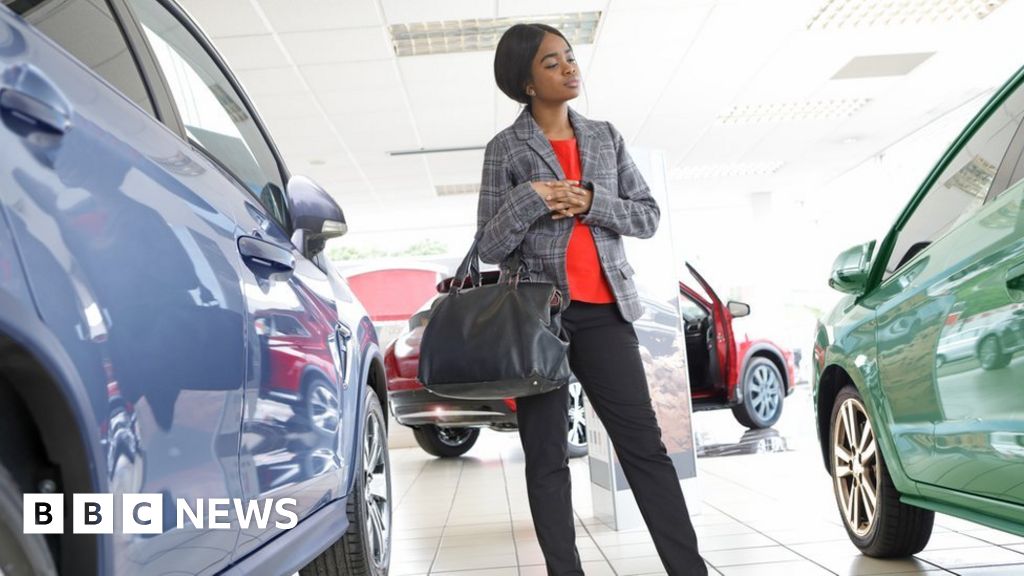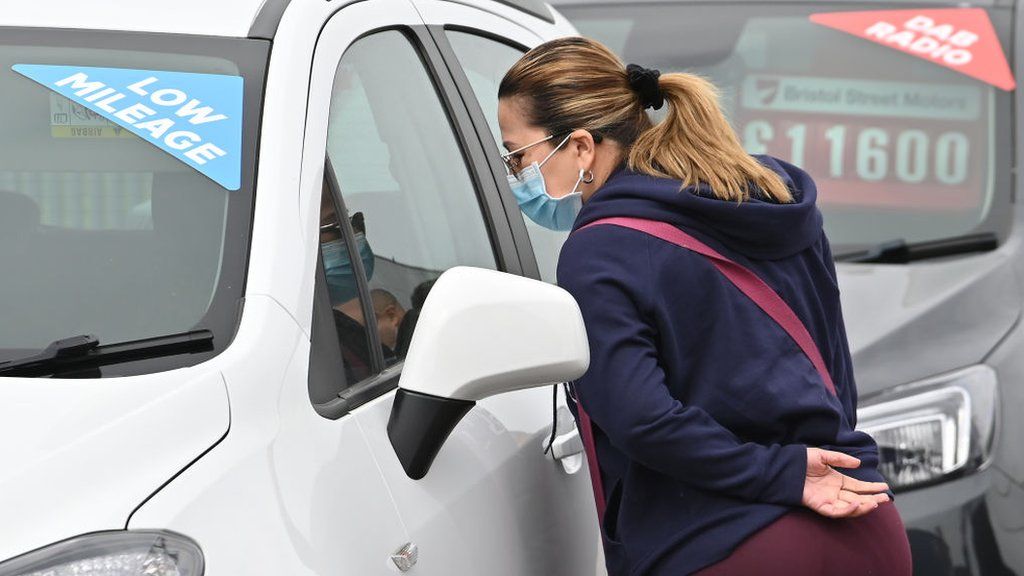
Getty Images
Car production in the UK has continued to fall as manufacturers struggle with global supply chain problems.
Almost 100,000 fewer cars were built in the first three months of 2022 compared to last year.
Manufacturing has dropped by nearly a third, according to the Society of Motor Manufacturers and Traders (SMMT).
The SMMT linked the decline to a global shortage of computer chips and rising energy costs for manufacturers.
During the first three months of the year, a total of 207,347 new cars were built in the UK, down from 306,558 in the same three months in 2021, when the pandemic created added pressures for manufacturers.
Manufacturers have been struggling to get hold of the parts they need – in particular semiconductors, or computer chips, which are widely used on modern vehicles.
The closure of Honda’s plant in Swindon last year has also been a major factor, and has contributed to a steep reduction in the number of cars exported to the US. Exports to the US saw the greatest decrease last month and declined by 63.8% during March, while exports to the EU declined by 24.5%.
The war in Ukraine is also having an effect on production, with factories struggling to get hold of parts such as wiring systems that would normally come from the region.
Meanwhile, carmakers are becoming increasingly concerned about the impact of rising energy costs.
‘Urgent action needed’
Mike Hawes, chief executive of the SMMT said that two years after the start of the pandemic, automotive production was “still suffering badly”.
“Recovery has not yet begun and, with a backdrop of an increasingly difficult economic environment, including escalating energy costs, urgent action is needed to protect the competitiveness of UK manufacturing,” Mr Hawes continued.
“We want the UK to be at the forefront of the transition to electrified vehicles, not just as a market but as a manufacturer so action is urgently needed if we are to safeguard jobs and livelihoods,” he added.
Responding to the figures, Chris Knight, automotive partner at consultancy firm KPMG, said component and material availability challenges remain, with the problems caused by the pandemic now “added to by conflict in Ukraine”.
“A focus on prioritising available components and materials into higher-margin vehicle production and sales has been to the detriment of some parts of the fleet industry,” Mr Knight added.


